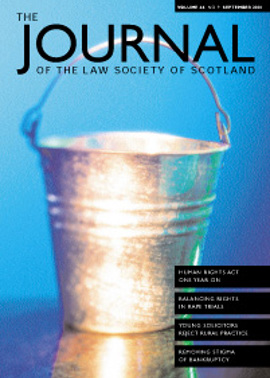Domain name disputes – all you need to know
The result is irritating but is it actionable?
Remedies for domain name disputes are available under different branches of law. Here we consider only the law of passing off.
Passing Off In a Nutshell
To establish passing off there must be (1) goodwill (2) a misrepresentation and (3) loss.
Goodwill
Goodwill has been defined as “the attractive force which brings in custom”. It is one of the significant assets of a successful business, capable of transfer and realisation. Goodwill may reside in the name or trading style of a business, its logos, badges, livery and even its address.
Misrepresentation
Typically a misrepresentation will involve one trader falsely representing that his goods or services are those of another. Equally, a false representation that another’s goods or services are yours, or that your goods or services are endorsed or licensed by or associated with another, or are of a particular quality or source, will involve misrepresentation. Crucially the misrepresentation must be such as to be likely to deceive the public.
Loss
There must be actual loss or, a substantial likelihood of loss. The loss may involve damage to reputation or actual loss of custom.Previous Success Stories
The Courts have accepted that the law of passing off may be appropriate to provide a remedy in the case of domain name disputes.
In the well-known One in a Million1 case the Defendants had registered domain names incorporating the names of companies including Marks and Spencer, Sainsbury’s, Virgin and BT. The company had done nothing more than register the domain names. In the particular circumstances and taking account of the extent of the Plaintiffs’ reputation the Court granted an injunction inter alia on the ground of passing off.More recently in easyJet Airline Co. Ltd. and Ors v Tim Dainty2 summary judgment was granted in respect of the use of the domain name easyRealestate by the Defendant. In considering whether passing off was established the Court considered the content of the website to which the domain name was linked. This, it is suggested, is the correct approach. The website may state or otherwise make it obvious that no connection exists between the operators of the website and the company whose name has been usurped. In that event it may be difficult to establish passing off.
The Scottish courts, in a number of unreported cases3, have not hesitated to grant interim interdicts on an ex parte basis in domain name disputes, relying on passing off as the ground of action.
So, What Should You Do?
If you are instructed in a domain name dispute consider raising proceedings for interdict and interim interdict and damages.
The first difficulty you may have is identifying the Defenders. The offending webpages may not disclose the identity of the trader. In the case of domain names ending in .co.uk, you can use the WHOIS search facility on the Nominet site (www.nic.uk) to determine the identity of the registrant. In other cases you can search the BetterWhoIs site (www.betterwhois.com).
You need to aver the necessary elements for passing off:
Goodwill
The date on which your client’s business commenced trading or was incorporated, the history of use of the trading name or other insignia incorporated in the offending domain name, the goods or services in respect of which the name or insignia have been used will all be relevant.
Misrepresentation
Consider what form the misrepresentation takes. Are the webpages accessed by keying in your client’s trading name, with visitors then being redirected to a site built on another domain name? Do the trader’s webpages contain your client’s trading name or other insignia?Do they expressly state that the goods and services supplied are those of your client?
Loss
Consider how the loss will be evidenced. Has your client received phone calls from confused customers? Has traffic to their own website been reduced? Have they seen a drop in sales?With this information to hand your preparations for an interim interdict hearing will be well underway.
Pauline McBride, pmb@bto.co.uk, Intellectual Property Consultancy, Brechin Tindal Oatts solicitors, www.bto.co.uk. Lisa and Pauline have represented clients involved in some of the earliest Scottish domain name litigations.In this issue
- President’s report
- Balancing rights of complainer and accused
- Young solicitors shun rural practice
- Ordinary rule of expenses doesn’t apply
- Pragmatic approach to voluntary arrangements
- Complicating culpable homicide
- Human Rights Act one year on
- Domain name disputes – all you need to know
- Loose ends can lead to claims
- Freedom to obtain medical services abroad
- Book reviews






